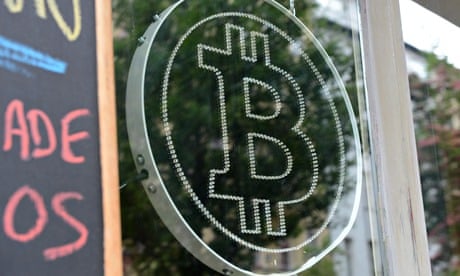US online retailer Overstock's decision to accept payment in Bitcoin has sparked a debate about alternative payment methods. On the first day alone the company raked in 830 orders and over $130,000 (£80,000) – but is this a sign of the future success of virtual currencies or was Overstock caught in a bubble of consumer excitement?
Either way, there are a number of factors that will define whether cryptocurrencies like Bitcoin (or Namecoin, Litecoin and even Dogecoin) will see mainstream success among retailers.
Local alternatives
Local payment methods exist in several countries and many of these offer more convenience than something like Bitcoin. For example, Elektronisches Lastschriftverfahren (ELV) or electronic direct debit is widely used in Germany. It's a method of processing direct debits and settled exclusively in euros without the need for a credit or debit card. In Japan, cash on delivery allows customers to pay cash to the carrier at the time an order is delivered. In the Netherlands, some e-tailers offer iDeal, an e-commerce payment system based on online banking.
These local payment systems are easy to use and already have widespread trust among their users. Bitcoin and its competitors are similarly virtual but don't have the same ease of use or widespread acceptance. In these markets it's going to be hard for virtual currencies to cut through.
Tax
Bitcoin and its competitors are yet to be defined as either an investment or currency. In the UK, things are being weighed up. HMRC has suggested that it may treat virtual currencies as an investment, meaning that they would be subject to capital gains tax rather than VAT.
The IRS in the US is yet to provide an answer. Whether virtual currencies remain a payment option on US websites depends largely on how the IRS classes them. If treated like an investment, then spending virtual currencies in retail stores will trigger a gain or loss by the consumer, therefore making it a less attractive payment option.
With China already having banned Bitcoin and the European Banking Authority giving a stark warning of the potential risks for using this currency, it's only going to take two or three more government decisions to make it hard for retailers to see it as a viable alternative payment option.
Currency volatility
The success of international commerce is largely reliant on stable exchange rates. Without a guarantee from a central bank, the volatility of virtual currencies is dangerous for early users. The volatility means retailers will rely heavily on third party online exchange platforms to immediately convert currency into sterling or dollars to ensure the value of the money.
Some currency exchange systems charge a low fee of 1% – lower than the fee charged by some visa and debit cards, so retailers won't lose out on revenue earned from a sale. However, there are a large number of websites claiming to be leading exchange systems, so consumers and retailers alike need to be careful when choosing a platform, as not all options will be credible or even legitimate.
This also raises many questions: if I purchase goods with Bitcoin at one price, what price will I get if I request a refund at a later date? If I discover fraudulent activity in my e-wallet, how much will I be reimbursed? Overstock has answered the question of returns by offering in-store credit instead of Bitcoins or cash, but it's not clear whether the credit will appear as a cash or Bitcoin value.
Security
As the name suggests, cryptocurrencies ensure optimum privacy, which has in the past made them attractive currencies for buyers and sellers of illegal goods. Retailers must be wary of taking such payments from anonymous sources. Can the buyer be trusted? If it's a big transaction, is it a sign of fraud? Bitcoin and its competitors' lack of governance mean there are no anti-money laundering controls, making it more attractive for criminals to set up fraudulent accounts.
The attraction of Bitcoin mining in particular has opened a new frontier for online criminal activity. Most recently malware was served in ads on the Yahoo homepage for four days, turning the PCs of users visiting the site into a "bitnet" – a power source for mining the virtual currency.
Novelty v familiarity
Bitcoin's reputation needs to improve to ensure that it's not just seen as a novelty payment method by consumers. Building trust in its brand will be key to its long-term success. The recent money laundering allegations leading to the resignation of Bitcoin Foundation's vice president, Charlie Shrem, hasn't helped its cause either. Building trust in its brand will be key to its long term success, which may now take longer than previously anticipated.
Darryl Adie is managing director of Ampersand Commerce
Get more articles like this sent direct to your inbox by signing up for free membership to the Guardian Media Network – this content is brought to you by Guardian Professional.






Comments (…)
Sign in or create your Guardian account to join the discussion